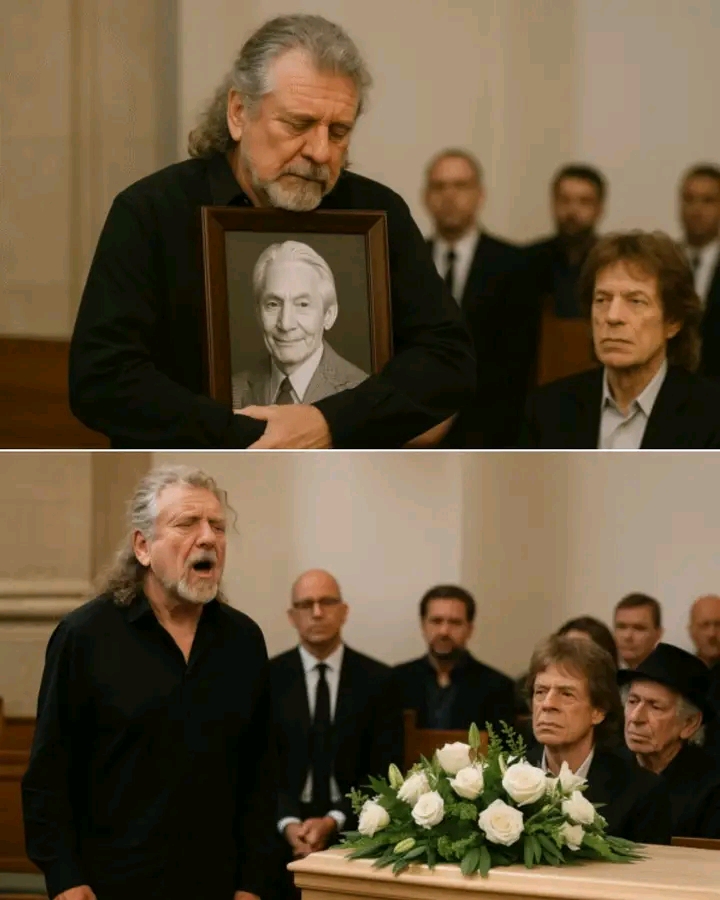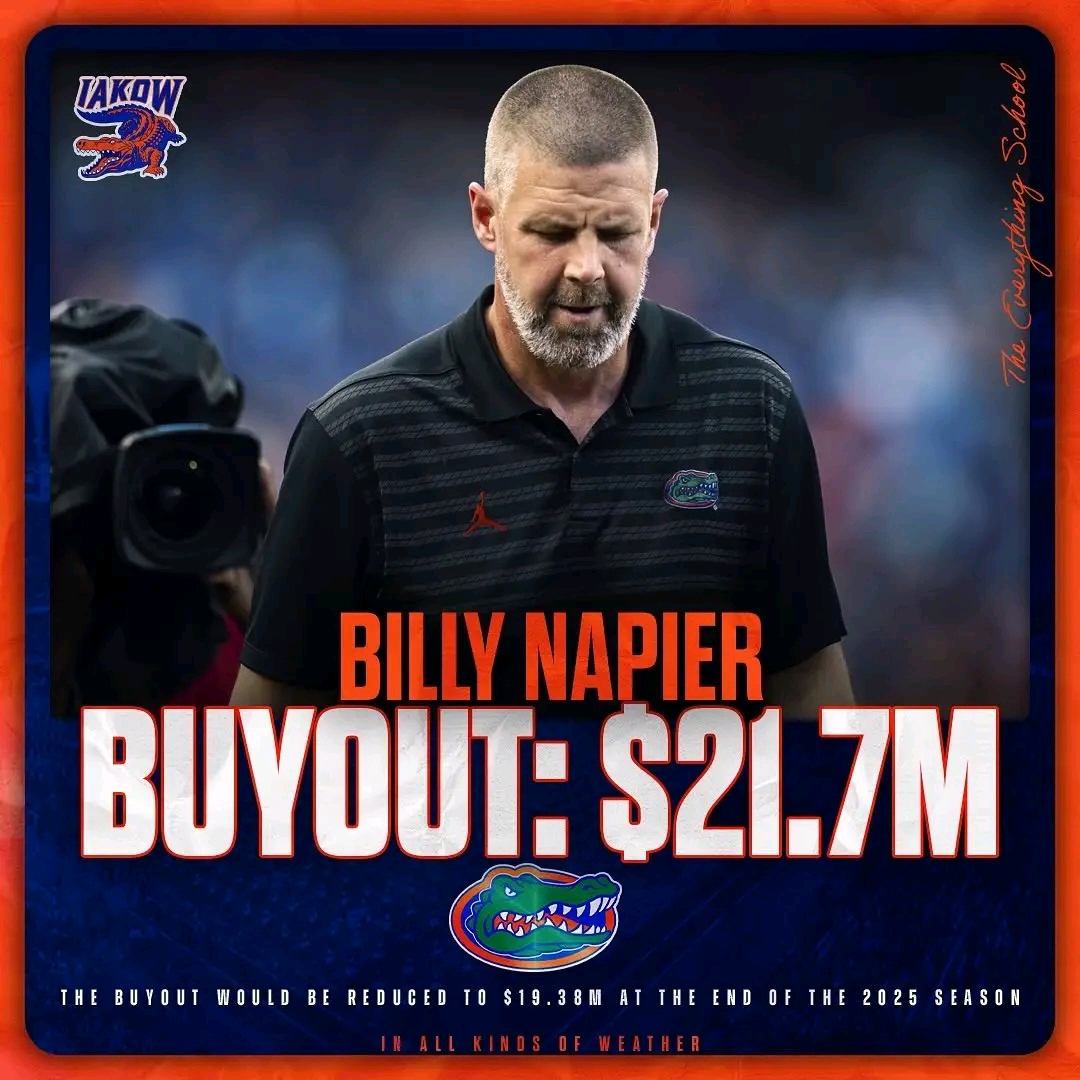Robert Plant’s Unforgettable, Tearjerking A Cappella Tribute at Charlie Watts’ Funeral Left Everyone Breathless
The chapel fell into a reverent hush when Robert Plant quietly stepped forward at Charlie Watts’ funeral, dressed in a simple black suit with his iconic golden curls tied loosely back, and stood beside the coffin without a microphone, without a band — just his voice. Witnesses described how Plant closed his eyes and began singing a haunting, unaccompanied rendition of “Will the Circle Be Unbroken,” his weathered yet soaring voice echoing through the chapel like a prayer. Mick Jagger, Keith Richards, and Ronnie Wood, seated in the front row, were visibly moved, with Jagger wiping away tears as the song reached its final verse. When the last note trembled into silence, Mick rose and embraced Plant, later calling the performance “the most beautiful farewell Charlie could have ever received.” Mourners said it felt less like a performance and more like “one soul sending another home.” Within hours, the Rolling Stones released a statement, calling Plant’s gesture “a gift of pure love for our brother.
The atmosphere inside the chapel was suffused with an almost sacred reverence as Robert Plant made his way to the front of the room at the funeral of legendary drummer Charlie Watts. Dressed simply in a black suit, his trademark golden curls loosely tied back, Plant approached the coffin with no microphone, no accompanying instruments—only his voice. The gathered mourners, including the surviving members of the Rolling Stones themselves, fell into a hush that was deep, respectful, and filled with profound emotion.
As Plant closed his eyes, the chapel seemed to hold its collective breath. Then, without any fanfare, he began to sing. The song he chose to honor Charlie Watts was “Will the Circle Be Unbroken,” a timeless hymn resonating deeply with themes of life, loss, and the hope of reunion beyond this world. Plant’s voice, weathered by years of rock and blues but still soaring with incredible power and emotion, filled the space. His rendition was unaccompanied—solemn and raw—allowing every nuanced inflection of his voice to carry the weight of goodbye.
Witnesses described the scene as deeply moving. It wasn’t just a musical performance; it was an intimate moment of farewell, a spiritual crossing. Sitting in the front row were Mick Jagger, Keith Richards, and Ronnie Wood—Charlie’s Rolling Stones bandmates and lifelong friends. The usually stoic Mick Jagger was visibly emotional, dabbing tears from his eyes as Plant’s voice climbed and fell through the hymn’s verses. Keith and Ronnie looked on with quiet admiration and sorrow, their expressions revealing the deep bond the band shared with their fallen brother.
When Plant’s final note faded into silence, the chapel remained still for a heartbeat longer before Mick Jagger stood and moved toward Plant. The two embraced in a moment filled with mutual respect and shared grief. Reflecting on that poignant occasion, Mick later called Robert Plant’s tribute “the most beautiful farewell Charlie could have ever received.” The words encapsulated the spirit of what many present described as less a public performance and more a soulful send-off—one soul guiding another on his final journey.
In the hours following the funeral, the Rolling Stones issued a heartfelt statement expressing their gratitude for Plant’s gesture. They described it as “a gift of pure love for our brother,” underscoring the profound significance and emotional depth of the moment. Watts, who was widely regarded as the steady heartbeat and understated powerhouse of the Rolling Stones, inspired tributes across the music world, but few were as touching as this singular, unaccompanied song delivered by another legendary voice from rock’s golden era.
This impromptu memorial through song captured not just the loss of a great musician but the enduring power of friendship and the shared history between giants of rock. Robert Plant’s decision to sing without accompaniment harkened back to a more timeless tradition of mourning—a simplicity that laid bare the human emotion beneath the fame and spectacle. His performance reminded everyone present, and those who would later hear about it, that beneath the legends were real people bound by love, memory, and mutual respect.
As the chapel emptied and mourners dispersed, many spoke of feeling changed by the experience. Plant’s haunting rendition seemed to help transform the grief into something more bearable, a moment of connection amid the sorrow. The ceremony itself became a testament to Charlie Watts’ impact not just as a musician but as a beloved friend and brother in rock history.
In an era when public farewells often come shrouded in pomp and elaborate production, this singular act of quiet homage stood out profoundly. It was a moment that would be remembered as much for its emotional sincerity as for its artistic beauty—a reminder of the enduring bonds formed through music and life.
Robert Plant’s voice, carrying through that chapel, was more than a tribute; it was a poignant, heartfelt prayer, echoing the circle of life and love that never truly breaks.



